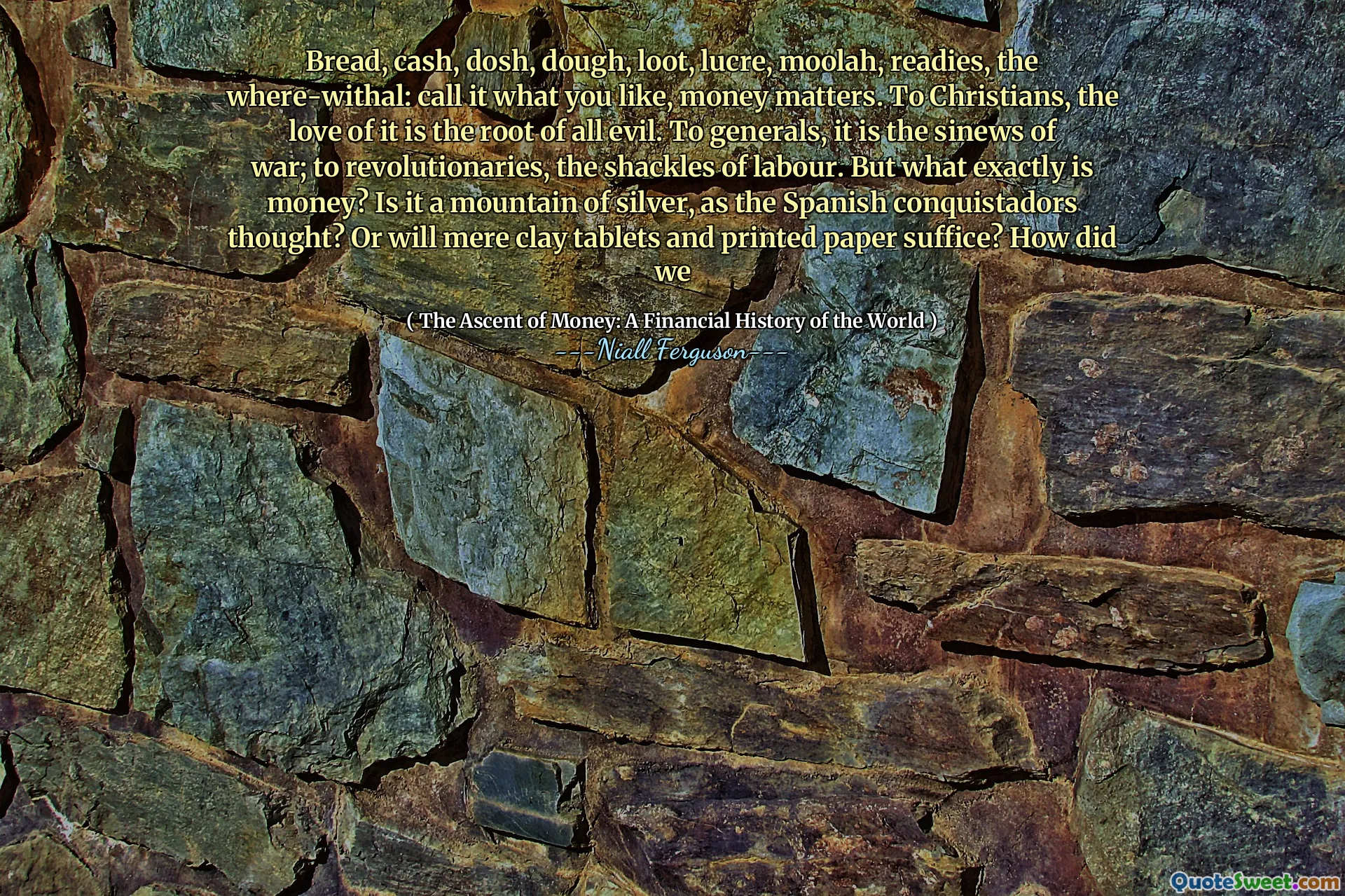
Bread, cash, dosh, dough, loot, lucre, moolah, readies, the where-withal: call it what you like, money matters. To Christians, the love of it is the root of all evil. To generals, it is the sinews of war; to revolutionaries, the shackles of labour. But what exactly is money? Is it a mountain of silver, as the Spanish conquistadors thought? Or will mere clay tablets and printed paper suffice? How did we
Money is a multifaceted concept, often viewed differently depending on one's perspective. For Christians, the love of money is seen as the source of many problems, while for military leaders, it is essential for funding wartime efforts. Revolutionaries, on the other hand, view money as a symbol of oppression. This complexity raises the question of what money truly is—whether it consists of tangible assets like silver or can be represented by simpler forms like paper or clay tablets.
Niall Ferguson's "The Ascent of Money: A Financial History of the World" delves into these varying meanings and functions of money throughout history. It explores how different societies have perceived and utilized money, reflecting broader economic and social dynamics. By examining its evolution, the book sheds light on the integral role that money plays in shaping human history and interactions.











